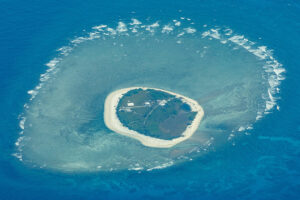
Japan backs arbitral award, urges China, PHL to prioritize diplomacy
By John Victor D. Ordoñez, Reporter
AS MARITIME tensions heighten between the Philippines and China, Japan urged both nations to prioritize diplomatic solutions and comply with a 2016 arbitral award over conflicting claims in the South China Sea.
“The arbitral award is final and legally binding on the parties to the dispute under the provisions of the United Nations Convention on the Law of the Sea (UNCLOS),” the Embassy of Japan in Manila said in a statement late Wednesday.
“Japan strongly hopes that the parties’ compliance with the award will lead to the peaceful settlement of disputes in the South China Sea.”
On Tuesday, the Chinese Coast Guard (CCG) fired water cannons at Filipino vessels on a resupply mission to a Philippine detachment in an area within the country’s exclusive economic zone (EEZ).
At least four Philippine Navy officers were injured in the incident.
The water cannons shattered the windshield of Unaizah Mae 4, a civilian boat contracted by the Philippine Navy that was carrying supplies to the BRP Sierra Madre, a World War II-era vessel that Manila deliberately grounded at Second Thomas Shoal (Ayungin Shoal) in 1999 to stake Manila’s maritime claim.
In 2016, a United Nations-backed tribunal voided China’s claim to more than 80% of the South China Sea. China has disregarded the ruling as it has continued its island-building activities in the waterway.
Japan said it “highly appreciates” the Philippines’ continued compliance with the arbitral award and its commitment to a peaceful settlement to disputes in the South China Sea.
RESUPPLY MISSIONS SHALL CONTINUE — PHILIPPINES
The Philippine military on Thursday said its resupply operations in the South China Sea will continue despite increasing harassment from Chinese vessels.
Armed Forces of the Philippines Western Command chief Alberto Carlos said they are “undeterred” and “will not yield,” days after the Chinese coast guard fired water cannons at a civilian boat contracted by the Philippine Navy to send food and other supplies to the grounded BRP Sierra Madre, which serves as an outpost for Filipino troops in Second Thomas Shoal.
“Our operations in the WPS will continue, along with our patrols and along with the exercise of our sovereignty, sovereign rights and jurisdiction,” he said in a radio interview.
“We will do everything to ensure that BRP Sierra Madre, which is the symbol of our sovereignty, stays there.”
Mr. Carlos said President Ferdinand R. Marcos, Jr.’s order is clear, and that is to ensure “continuous” resupply and rotation missions to the Navy outpost.
During the collisions due to a series of blocking maneuvers and the firing of water cannons by the Chinese Coast Guard on March 5, Mr. Carlos was among the injured who sustained cuts when the glass windows of Unaizah Mae 4 were shattered.
“We will legitimately defend our rights in accordance with the law,” Chinese Foreign Minister Wang Yi told a news briefing on Thursday. He said that “certain countries outside the region” should not stir up trouble in the maritime dispute.
Aside from the Philippines and China, Brunei, Malaysia, Taiwan and Vietnam also have claims to parts of the waterway.
As the incident gained the ire of the international community, the US State Department reiterated on Wednesday that an armed attack on Philippine armed forces, vessels, and other assets anywhere in the South China Sea would lead to the activation of its 1950s mutual defense treaty with the Philippines.
But Marcos said the latest incident would not merit the activation of Manila’s 1951 Mutual Defense Treaty with the United States, which arguably has the world’s most powerful military force.
The Philippine Department of Foreign Affairs (DFA) on Tuesday summoned Chinese Deputy Chief of Mission Zhou Zhiyong to convey the Philippine government’s protest against the Chinese coast guard’s actions.
DFA Secretary Enrique A. Manalo said last month that negotiations with Japan on the Reciprocal Access Agreement have been progressing and that the Philippines would be willing to hold more bilateral meetings between their military counterparts.
Both countries started negotiations on the agreement last year, which would allow forces to be deployed on each other’s soil.
The pact would be submitted to the Philippine Senate and Japanese legislature for ratification.
“Japan has consistently advocated upholding the “rule of law” at sea, and will continue to cooperate with the international community such as ASEAN (Association of Southeast Asian Nations) Member States and the United States to protect the free and open international order based on the “rule of law,” the Japanese embassy said. — with a report from Kyle Aristophere T. Atienza



